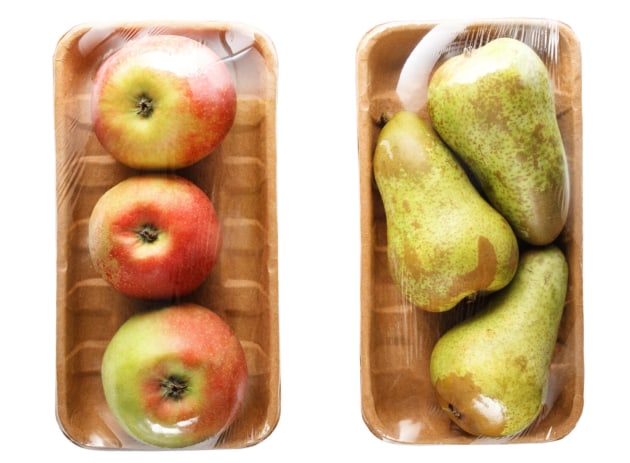In the 1970s, cling film revolutionised the way food was kept fresh. Flexible packaging and lidding films specialist KM Packaging has developed an alternative that has the same capabilities with less impact on the environment.
The arrival of cling film truly changed the way food was wrapped and kept fresh, with consumers discovering a new skill as they mastered the art of unrolling the film and sealing everything from fresh produce to their favourite workplace snacks.
However, conventional cling film is often not recycled with because of food contamination or restraints within collection or recycling systems.
KM Packaging has introduced a new alternative – home-compostable C-Cling.

C-Cling is clear, stretchy, and sticky, and performs the same as conventional cling film. As well as home usage, it is ideal for the high-volume industrial packing of fruit and vegetables and other fresh produce on trays. It is also suitable for catering and restaurants.
The product is flexible in material and nature, from daily usage within catering businesses to store and transport food safely, to protecting and preserving the quality and taste of food in the retail environment.
In addition, C-Cling, which is made from bio-based renewable sources, is the perfect partner for compostable trays to create a complete packaging solution.
Historically, plastic film has been used for wrapping products on an industrial level, with the first version – which became known as Saran – being used to protect military equipment and later for food packaging.
C-Cling is similarly versatile. And, as well as being used to wrap fresh produce, C-Cling is suitable for secondary packaging, such as pallet wrapping.
The product is part of the bio-plastic C-Range from KM Packaging, developed in partnership with Treetop Biopak, specialising in providing innovative compostable packaging solutions.
Treetop owner Amir Gross says, “C-Cling can be used on an industrial scale for the wrapping of multiple products and is particularly helpful when the trays are also compostable.”
C-Cling film complies with EC food-contact Regulations 1935/2004 and 10/2011. It also complies with FDA regulation 21 CFR 177.1630 provided it is used subject to certain advised limitations and in good manufacturing practices.
The C-Range also includes:
C-SHRINK
Home-compostable shrink film that’s ideal for packaging of vegetables, bakery, and other foodstuffs as well as bundling multi-packs and as a secondary wrap for packed goods.
C-STRETCH
A home-compostable stretch film, that is 100% bio-based from renewable resources. Has similar properties to PE / PVC film.
C-TAPE
Industrially-compostable adhesive tape that is made from bio-based sources and natural gum.
C-BAG
Home-compostable bags suitable for fresh produce, bakery, and meat.
C-NET
Compostable extruded net for a wide range of applications.
The C-Range enhances KM’s portfolio of sustainable flexible packaging solutions and offers customers a wider range of choice.
This article first appeared in the October edition of Food & Drink Business magazine.






